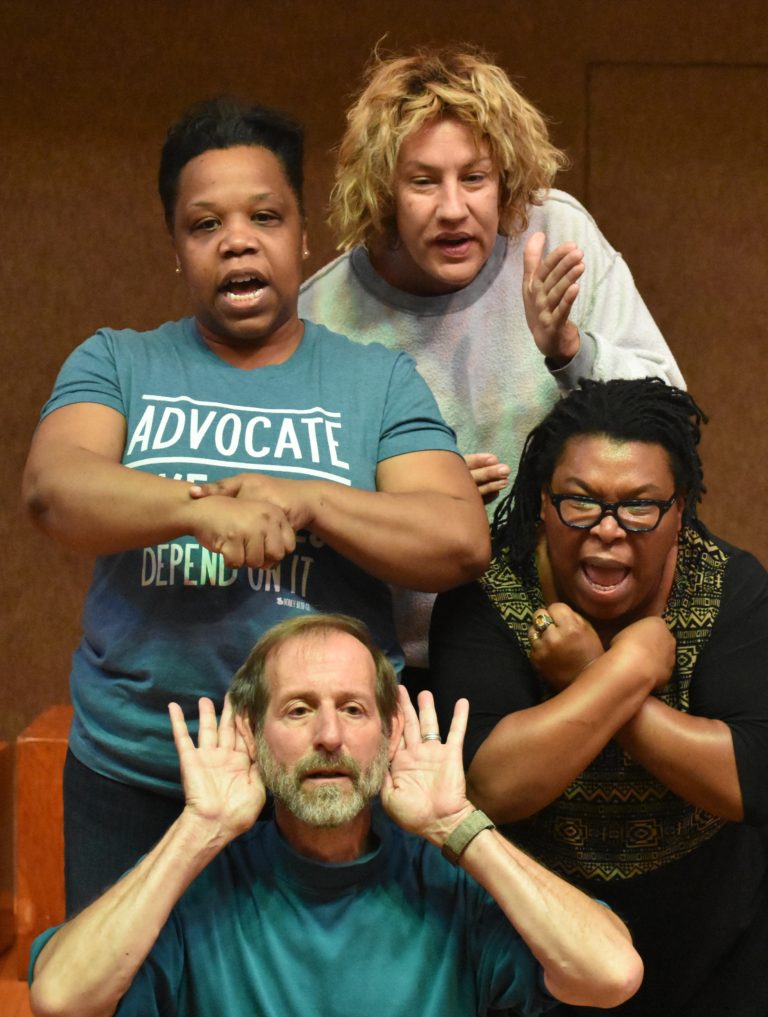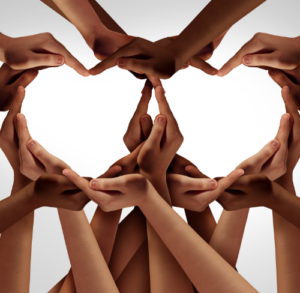The Mandala Center provides unique, highly participatory workshops to help organizations, groups, as well as individuals increase awareness and
take action towards a more equitable and just life for all people.
The Mandala Center provides unique, highly participatory workshops to help organizations, groups, as well as individuals increase awareness and take action towards a more equitable and just life for all people.
Below are some program options. We recommend 2-3 days with a range of 10-30 participants
though adjustments can be made. We work with you to design a program that fits your group
or organization’s specific context and goals.
Below are some program options.
We recommend 2-3 days with a range of 10-30 participants though adjustments can be made. We work with you to design a program that fits your group or organization’s specific context and goals.
By providing anti-oppression and/or anti-racism education workshops, organizations can better serve their communities and create healthier, more inclusive environments in the workplace. Our approach is highly participatory and includes work on internal, interpersonal, institutional, and systemic racism. We bring a trauma informed framework, provide some didactic information, and center a popular education approach, which engages the wisdom of participants via shared learning, all guided by skillful and experienced facilitators. Meet Our Team.
“I learned how I have been participating in an oppressive society at times as an oppressor. It
was eye opening to realize how problems are viewed so differently within (diverse) groups.”
–Workshop Participant
Diversity: Moving from
Reality to Truth
Sometimes referred to as an “Anti-Oppression” workshop, this highly adaptable program creates a context for groups to explore issues of race, class, gender, sexual orientation, disability, age, religion, etc.
Dialogue can be focused on just one aspect such as racism or broadened to include all the “isms”.
Primary methods include applied theatre, anti-oppression theory, and other participatory tools to generate an honest and humane dialogue on those differences that divide people through inequity and injustice.
This workshop invites participants towards the creation of a more authentic and sustainable unity with others.
Our diversity work embraces the duality between a “truth” of unity which holds that we are all one people and a “reality” of division with some people treated differently than others, in part, because of their social identity group membership.
“I am taking away a simple yet profound insight from this workshop — everyone is suffering from racism. My actions and non-actions affect me and can have an impact on other people in ways I wasn’t aware of.” –Workshop Participant
Racial Affinity Groups / Caucuses
Black, Indigenous, and People of Color (BIPOC)
White/European Affinity Space
Multi-heritage & Mixed Race people
(*See drop-down descriptions to the right)
Spending time in Affinity Group space is valuable and sometimes even necessary to strengthen solidarity, deconstruct internalized oppression and privilege, and rest in shared understandings.
We recognize that race is a social construct. There is a dehumanizing aspect to racial categorizations — caucusing is not a “one size fits all” approach, we honor the complexity of identities that each person carries. Our diversity work embraces the duality between a “truth” of unity which holds that we are all one people and a “reality” of division with some people treated differently than others, in part, because of their social identity group membership.
Affinity groups / caucuses may seem divisive, but the goal is in fact to create an environment where mixed groups can then be together in a more authentic and healthy way. To better understand the importance of race-based affinity groups / caucuses please read “Race-based Affinity Groups – Why do Them?”
At times there is a call for sub-division within racial affinity groups. For example, there may be a need for a space that is solely for Black People or Latinx or Jewish identifying people. Facilitators attend to the needs of the group in order to create a healthy container that supports connection, healing, and growth.
* Note – Additionally, there is value and often need for other social group affinity spaces as well including gender, sexual orientation, age, religion, etc. Please Contact Us to explore the needs of your group or organization.
BIPOC Affinity Space
The BIPOC (self-identifying Black, Indigenous, People of Color) affinity space is designed to center replenishment, release, reflection and revisioning for folks who experience the daily assault of what it means to be of color in America.
Embodied practices and resources emphasize connection with a focus on self-care, grounding, joy making and collective dialogue/support on issues that are of most importance to group participants.
White Affinity Space
White / European descent people have an opportunity to reflect on and dialogue about race, equity, and inclusion without putting the emotional labor on their BIPOC friends and/or colleagues. Content may include but is not limited to:
- Racial Literacy presentation on current concepts and language in order to talk about race with more honesty, confidence, and fluency.
- Power analysis of social group membership (including intersectionality) with interactive exercises / applications.
- Story sharing to encourage self-reflection and build community/solidarity.
- Implicit bias consciousness raising.
- Action practice to explore strategies for a more just and equitable workplace for all.
- Self care practices and frameworks to support social-emotional health and wellbeing.
Multi-heritage Affinity Space
Multi-heritage people navigate many racial worlds often making it complex to find a true sense of belonging. This space allows people to explore the fullness of their identities without compartmentalizing aspects of themselves. It is an opportunity to celebrate and more deeply explore cultural origins, honor experiences of racial oppression, and grow awareness on the impacts of “whiteness” in our quest for personal healing and racial justice.
Story sharing, inquiry, deep listening, embodied approaches, and self care practices support a spirit of solidarity and a culture of possibility. Check out articles, links, videos and more: Multi-heritage / Mixed Race Resources


